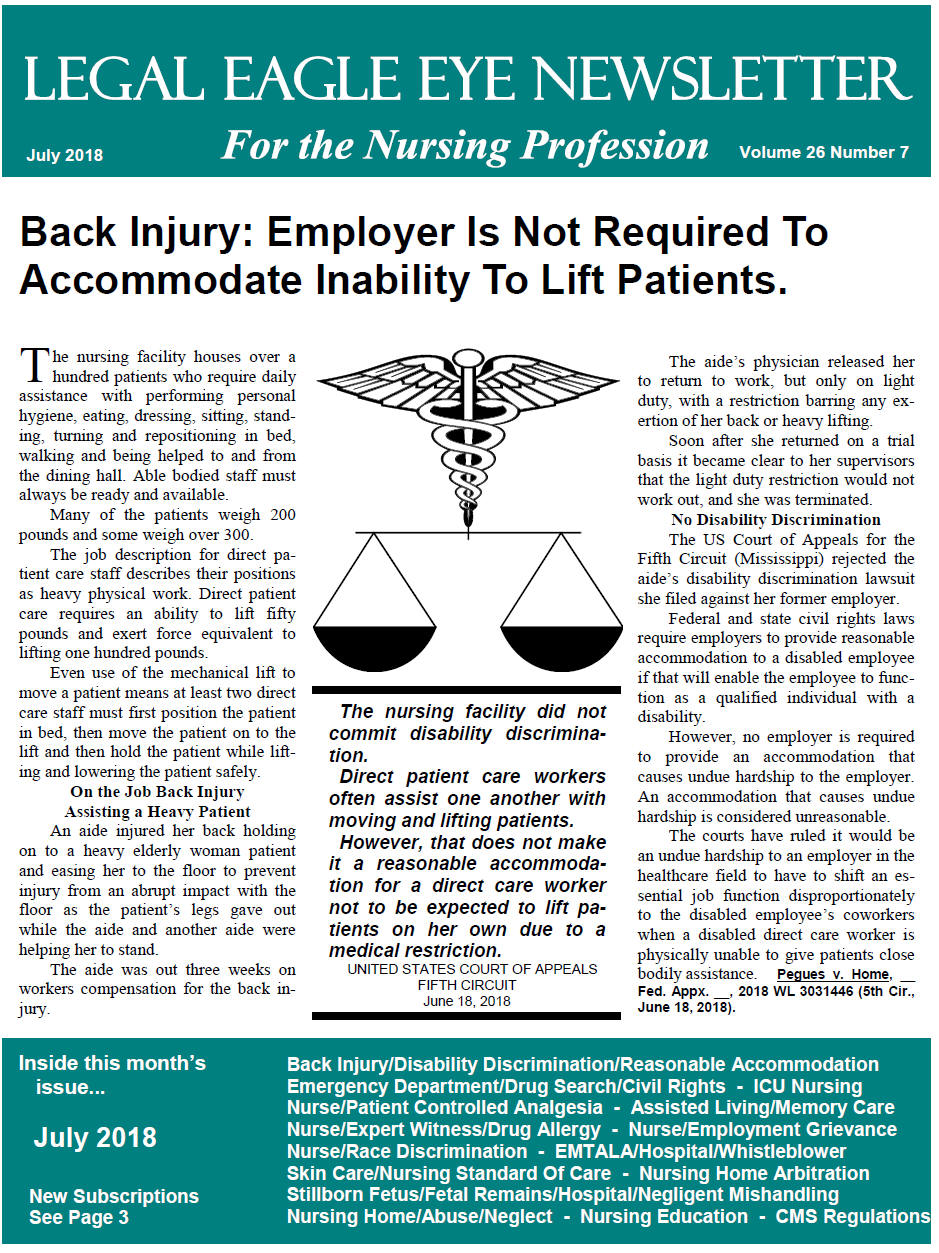
Click here to request a complimentary copy of our current issue.

Back Injury: Employer Is Not Required To Accommodate Nurse's Inability To Lift Patients.
The nursing facility did not commit disability discrimination. Direct patient care workers often assist one another with moving and lifting patients. However, that does not make it a reasonable accommodation for a direct care worker not to be expected to lift patients on her own due to a medical restriction. UNITED STATES COURT OF APPEALS FIFTH CIRCUIT June 18, 2018
The nursing facility houses over a hundred patients who require daily assistance with performing personal hygiene, eating, dressing, sitting, standing, turning and repositioning in bed, walking and being helped to and from the dining hall. Able bodied staff must always be ready and available. Many of the patients weigh 200 pounds and some weigh over 300.
The job description for direct patient care staff describes their positions as heavy physical work. Direct patient care requires an ability to lift fifty pounds and exert force equivalent to lifting one hundred pounds. Even use of the mechanical lift to move a patient means at least two direct care staff must first position the patient in bed, then move the patient on to the lift and then hold the patient while lifting and lowering the patient safely.
An aide injured her back holding on to a heavy elderly woman patient and easing her to the floor to prevent injury from an abrupt impact with the floor as the patient’s legs gave out while the aide and another aide were helping her to stand. The aide was out three weeks on workers compensation for the back injury. The aide’s physician released her to return to work, but only on light duty, with a restriction barring any exertion of her back or heavy lifting. Soon after she returned on a trial basis it became clear to her supervisors that the light duty restriction would not work out, and she was terminated.
The US Court of Appeals for the Fifth Circuit (Mississippi) rejected the aide’s disability discrimination lawsuit she filed against her former employer. Federal and state civil rights laws require employers to provide reasonable accommodation to a disabled employee if that will enable the employee to function as a qualified individual with a disability. However, no employer is required to provide an accommodation that causes undue hardship to the employer. An accommodation that causes undue hardship is considered unreasonable.
The courts have ruled it would be an undue hardship to an employer in the healthcare field to have to shift an essential job function disproportionately to the disabled employee’s coworkers when a disabled direct care worker is physically unable to give patients close bodily assistance. Pegues v. Home, __ Fed. Appx. __, 2018 WL 3031446 (5th Cir., June 18, 2018).
More references from nursinglaw.com
http://www.nursinglaw.com/backinjury.htm
http://www.nursinglaw.com/backinjury2.htm
http://www.nursinglaw.com/back-problem-disability-discrimination.htm
http://www.nursinglaw.com/lifting1.htm
http://www.nursinglaw.com/lifting2.htm
http://www.nursinglaw.com/lifting3.htm
http://www.nursinglaw.com/lifting4.htm